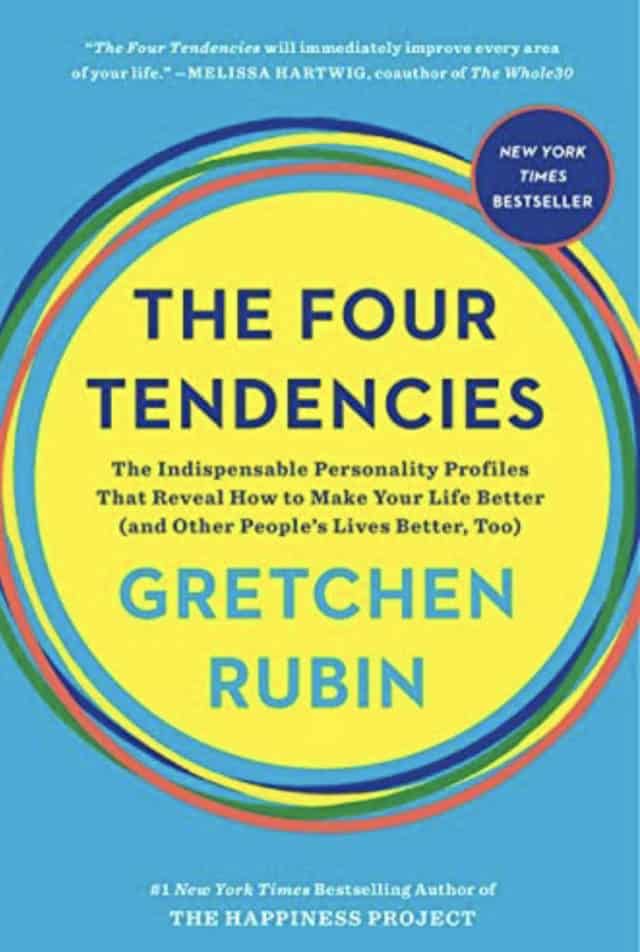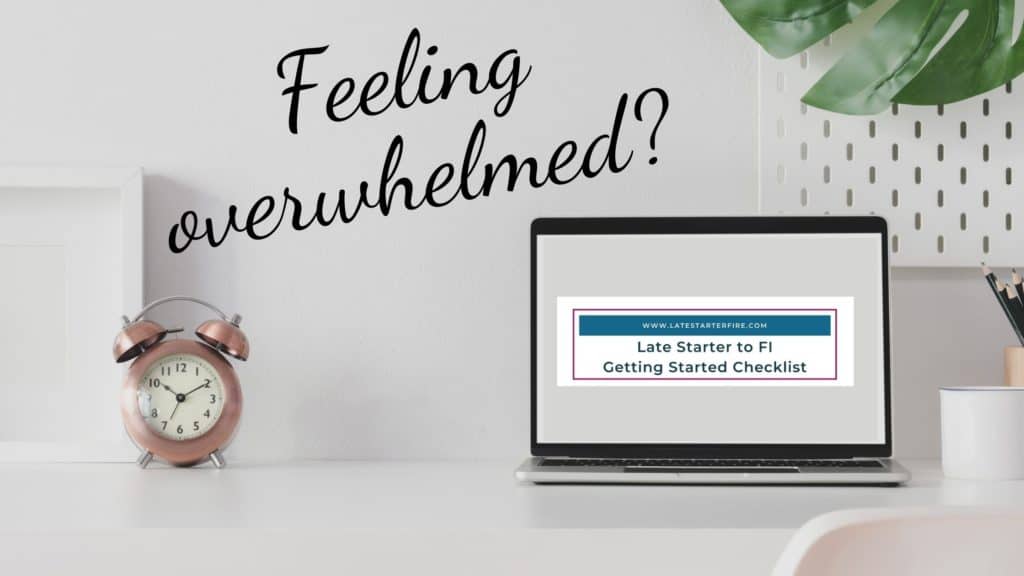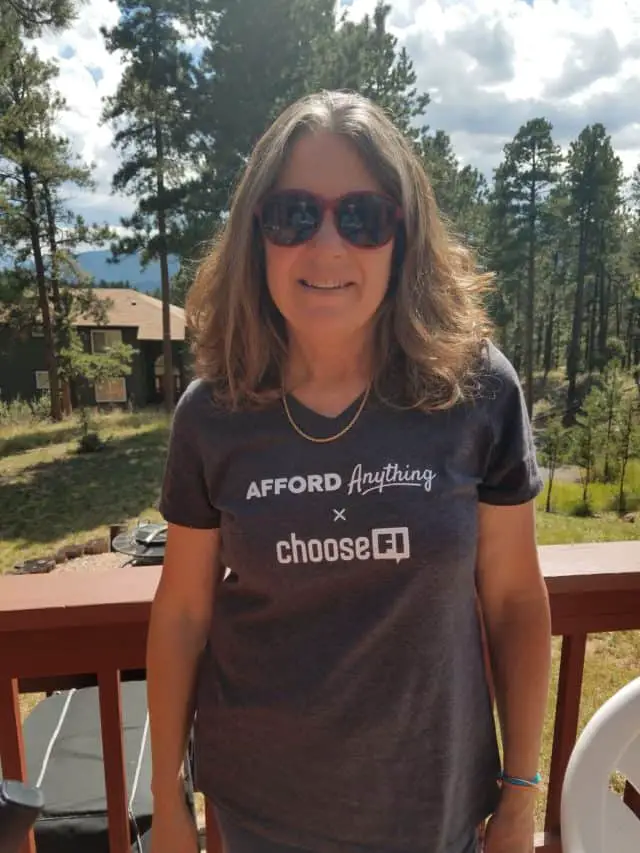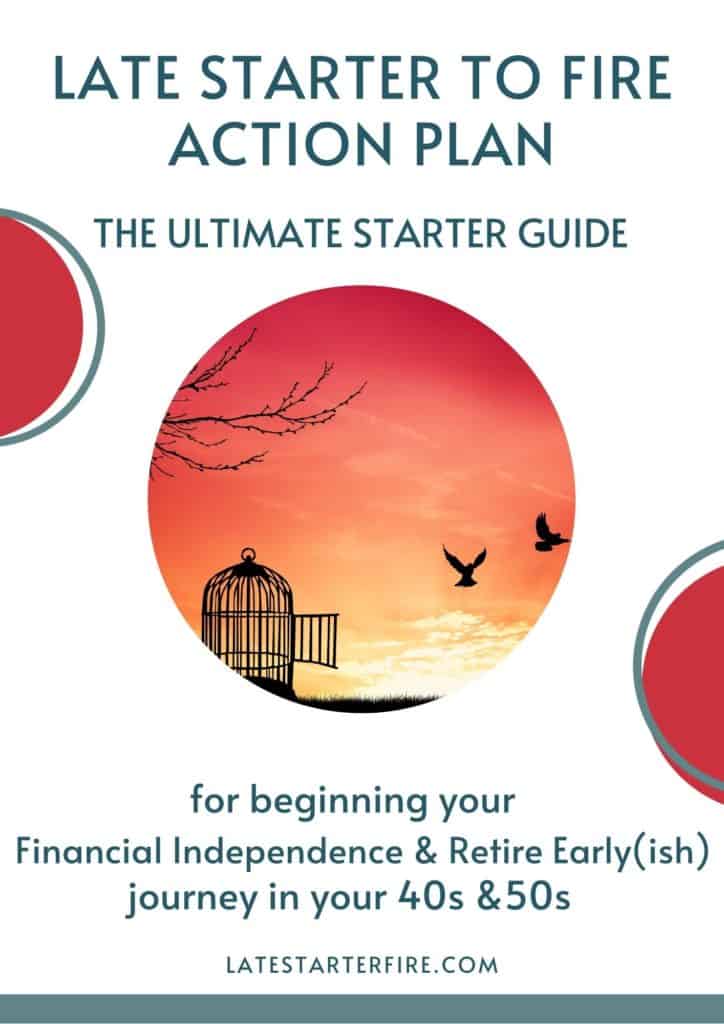
Disclosure: Please note that I may benefit from purchases made through my affiliate links below, at no cost to you
Are you an Obliger?
Gretchen Rubin in her book “The Four Tendencies” uses how we respond to outer and inner expectations to divide all of humanity into four distinct groups or tendencies.
Outer expectations are expectations others place on us eg our family expects us to make dinner for them.
Inner expectations are expectations we place on ourselves eg we want to lose 10kg this year.
In a nutshell, Rubin identified the four tendencies as:
(1) Upholder – you respond well to both outer and inner expectations
(2) Rebel – you resist all expectations, outer or inner
(3) Questioner – you question all expectations and only respond if they meet your inner expectations
(4) Obliger – you respond well to outer expectations but struggle with inner expectations
Interestingly, according to Rubin’s research, Obligers form the biggest category with 41%. Questioners are next at 24% while Upholders are 19% and Rebels are the smallest group at 17%.
Which tendency am I?
I am an Obliger, through and through.
Let me demonstrate.
I know how important exercise is, being a health professional. But I cannot for the life of me, exercise on my own. I just lose motivation very quickly and give up.
It doesn’t matter whether I have a goal in mind, for example participating in a 10km fun run. Umm … I have been known to drive to the gym, sit in my car and then turn around and go home. I also struggle with going for a walk by myself, just for the sake of exercise.
Until I read Rubin’s The Four Tendencies, I always assumed I was an ultra weak person who could not stick with any schedule or project.
My life is littered with numerous craft projects that I started but never finished. I may have once donated a half finished knitting project, complete with knitting needles, wool and pattern.
Yet, I could always finish school or work projects. I love having deadlines and that last minute adrenaline rush that force me to complete my work on time. So it’s obvious that I work well under other people’s deadlines, just not my own.
What is the solution?
Rubin’s solution for Obligers is to create outer accountability, to be accountable to other people in order to help us be accountable to ourselves.
Being accountable is being responsible for one’s actions and answerable to someone, be that an external person, organisation or internal ie to yourself.
These days, I share a personal trainer with a friend. It is much easier for me to turn up to a training session knowing I can’t let my trainer or friend down ie they expect me to show up. I feel bad if I don’t show up, my friend will have to pay the full price of the training instead of half.
If I need a short walk after being cooped up inside, I will happily walk to the supermarket, telling myself I need to buy ingredients to cook for my elderly parents.
So my own experience bears out Rubin’s solution.
I can exercise if I do it with others or if there is another purpose that benefits others. I can complete projects if I have to answer to my teachers or colleagues or employer.
What has this to do with staying on the path to FIRE?
Depending on where you are at in managing your finances at the time you discovered FIRE, it may take many years to achieve financial independence and then retire early.
Even though the concept is simple enough – spend less than you earn; increase the gap between your expenses and income; invest this gap wisely to grow your wealth – continuously taking action is not easy.
Results are not instant. It’s a long game. It takes time for compound interest to kick in and do its thing. It takes time to change your behaviour and habits that have been ingrained for years up to this point. Unless you are a high income earner and spend well below your income, of course. But many of us are not in this fortunate position.
It is exciting at the beginning of your FIRE journey – you are filled with enthusiasm and rush to implement everything you’ve read and learnt.
But as time goes on, it is also easy to be discouraged and become impatient to get to your end destination.
Wanting to be financially independent is an inner expectation. No one is forcing you to start your FIRE journey and stay on track. How do you stay on track? Are you an Obliger like me and struggle with being accountable to myself?
On a side note, if your life partner is not on board, knowing their tendency will help you convey your goals in a way they can understand and support.
Focus on your Key Goals and Stay on Track to FIRE
Use this FREE FIRE Goals Plan every month to set & achieve your goals

My experience
I hadn’t read Rubin’s book when I discovered FIRE in my late 40s and therefore didn’t know I was an Obliger. But I knew myself pretty well to know that I would give up at the first sign of a road block. Especially because there was no one in my real life to share the journey with.
My solution?
I started a blog.
I know, right?! Pretty extreme.
Especially considering that I hadn’t read any blogs before reading FIRE and personal finance blogs when I stumbled on the FIRE community. I had looked up recipes on the internet before but that’s about it.
But it was ultra important to me that I stay on the path to FIRE. It was the only way I could see that would accelerate my retirement savings and enable me to retire at all, let alone retire comfortably. After all, I was already a late starter and I really didn’t have any time to lose.
I knew it necessitated behavioural changes especially in the way I spend money.
So I was nervous about relying on myself sticking to my own ‘rules’ – I can foresee failure from a mile away.
But, as I reasoned to myself – if I have to report my spending or saving rates on the blog to you, even though you are all originally strangers on the internet, I have to track my spending. And if I overspend, I will have to explain why.
So far, I am happy to report – being accountable to you has kept me focused and not stray too far from the path. I am very grateful to all of you ❤️
What if you don't want to start a blog?
I hear you. Blogging can be quite hard work, especially when you already have a full time job or are not very techy (sorry, my excuses!)
I encourage you to find others on the same path, be that in an online community or in real life. Sometimes, simply connecting with people on the same path online is enough to bolster your conviction and help you along the difficult times.
Even if you are uncomfortable disclosing your pursuit of FIRE to your friends and family, you can tell them you are saving hard for XYZ and ask them to keep you accountable by not spending money on takeaway or whatever your weak point is in spending habits.
There are also online accountability apps such as StickK that you can sign a ‘commitment contract’ with – up to you to define your goals and add a (dis)incentive such as donating to a charity or political party you don’t like if you don’t achieve your goals.
But if you are an Obliger, you may also need an accountability partner.
That can be your spouse or partner in life or even someone else
entirely, online or in real life.
This person must be encouraging and supportive but also ready to administer some tough love ie not let you off the hook too easily. They don’t even have to share your goals. But both of you need to commit to the number of check ins over a defined time frame.
It is the act of checking in that is crucial – you give an account (or report) of your actions. In return, you receive encouragement and support. This makes you feel good that you’ve achieved what you said you would and you want to do it again.
How do I know all this? Because I have real life accountability partners for blogging. Ok, this is going to sound complicated …. blogging about my FIRE journey keeps me accountable to you about my financial goals and progress – that works for my FIRE journey.
But I struggle with the act of blogging sometimes. So even if I set a deadline to publish every week on say, Friday, I DON’T. I let myself off the hook all the time because all deadlines are self imposed.
And this is where my blogging buddies come into the picture. I tell them my goal and we check in weekly. Of course there are times when we grant ourselves some grace when life is ultra busy, but we work out ways to help each other achieve our goals.
Final thoughts
Reading Gretchen Rubin’s The Four Tendencies helped me understand myself better. Knowing that my tendency is an Obliger, I can come up with ways to be accountable to myself by being accountable to others.
This has helped me tremendously on my own path to FIRE.
I encourage you to find ways to be accountable on your journey to FIRE. If you are an Obliger like me, it’s so helpful to have others to be accountable to.






